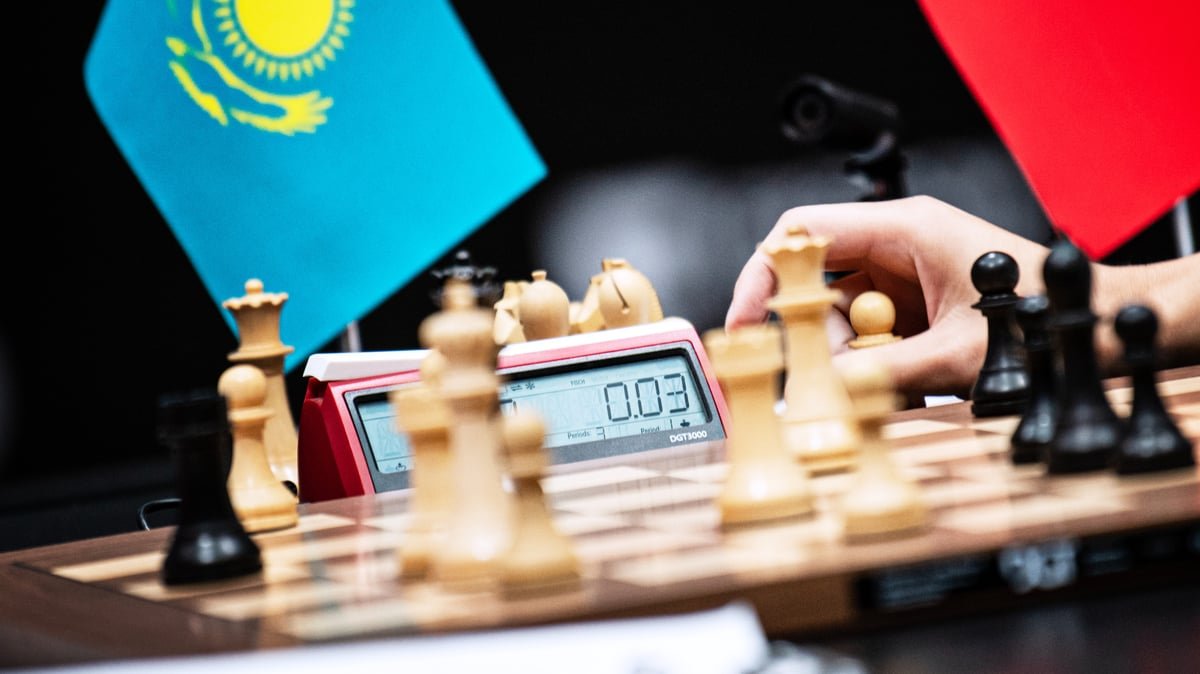Time is a crucial element of Chess. Effective Calculation and Planning is all about Timing! Have you noticed how good players always seem to bring their pieces to the best squares exactly when required? Just good Timing. Another form of Time is Momentum. If we respect it while we have it, it can be a game changer. The first World Champion Wilhelm Steinitz established in the early 1900s that the side with a dynamic advantage on the board must use the momentum to launch an attack. Otherwise the advantage will fizzle out, as the opponent will get enough time to bring in re-enforcements. The classic adage about taking the initiative in life fits well here: Strike while the iron is hot!
Going one step further, Time has a direct influence on the game, especially in competitive chess. Did you know there is a Clock beside the Board?
Chess clock concept
The chess clock is an essential tool in competitive chess, which ensures that games are played within a reasonable time frame. A chess clock consists of two linked timers, one for each player. When a player makes a move, they press a button on their side of the clock, pausing their timer and starting their opponent’s. This system functions much like a stopwatch, tracking the total time each player takes during the game. Each player is allocated an equal & specific amount of time for their entire game. The player who runs out of time first, loses! Thus, a game of Chess can end either due to the position on the board i.e. Checkmate, Stalemate, Resignation etc, OR due to a loss on time.
Time controls
Time controls in chess vary. Common formats include Classical time control, where each player has up to two hours, or slightly more, for the entire game, Rapid, with typically 15-25 minutes per player, and Blitz, where each player has only 3-5 minutes. Bullet chess is even faster, often giving players only 1 minute each.
Chess: Mastering Pawn And King Endgames
Increment
A 21st century feature across most time controls is the Increment, which adds a small amount of time—usually a few seconds—to the clock after each move. This ensures that a player doesn’t simply lose on time, provided they keep making moves within the increment period. For instance, in a 3+2 game, which is the standard Blitz time control, each player begins with 3 minutes, and 2 seconds are added to each side with each move i.e. every time the player presses the clock. The Increment, a concept championed (and patented ) by the American Chess Legend Bobby Fischer, ensures that the quality of the game is retained while keeping the contest competitive.
Classical, rapid, blitz
Rapid and Blitz Chess are hugely popular now, especially with the advent of online chess and increased chess viewership. The game in shorter time controls relies mainly on reflexes and intuition. Even so, the Classical format remains the most popular time control, enabling enough time for long term strategy and planning. All the main tournaments like the World Chess Championship, Chess Olympiad, and World Cup follow the Classical time control. A usual format in these events is to allot 90 minutes each with an increment of 30 seconds per move, for the 1st 40 moves, with an additional half an hour each allotted post move 40, while continuing the increment. Even though it may seem like a lot of time, players often feel pressured by the clock in the classical format as well. It is not uncommon for players to experience acute ‘time pressure’, especially if the game stretches into the 4th and 5th hour of play, where time, energy, focus all tend to deplete. Being low on time tends to put a psychological pressure on the players to move faster, decide faster, thus leading to more unforced errors
Chess: Endgame Is About Knowledge And Intuition
Effect of the clock
A few years ago, during the Aeroflot Open tournament, I emerged with an excellent position in the endgame against a Grandmaster. Alas, during the 5th hour of play, with a minute left on the clock, I froze and overstepped the time limit. While losing on time is not uncommon, such a loss can be more difficult to take than losing solely on chess skill, as the psychological effect of the loss may linger. A contrasting memory comes from the Women’s World Team Championship 2013, where I ‘surprised’ my second-round opponent in the Opening by employing a new idea in a sharp position. My opponent spent a formidable 45 minutes within the first 10 moves of the game, trying to solve all her problems on the board. My time advantage gave me the confidence to push for the initiative and pose her with more challenges; eventually, in the critical position, she did not have enough time come up with a tougher resistance and collapsed. This win helped our team win the match, and I won a cherished Individual Bronze medal at the end of 9 rounds.
The clock can be your silent opponent, ticking away as you contemplate your next move; or, a faithful friend, pressurising your opponent and building your confidence. It depends on how you approach this concept. Managing your time well will help you convert those advantageous positions into full points!
(Soumya Swaminathan is an International Master and Woman Grandmaster in Chess. She has been World Junior Champion and Commonwealth Gold Medalist)



